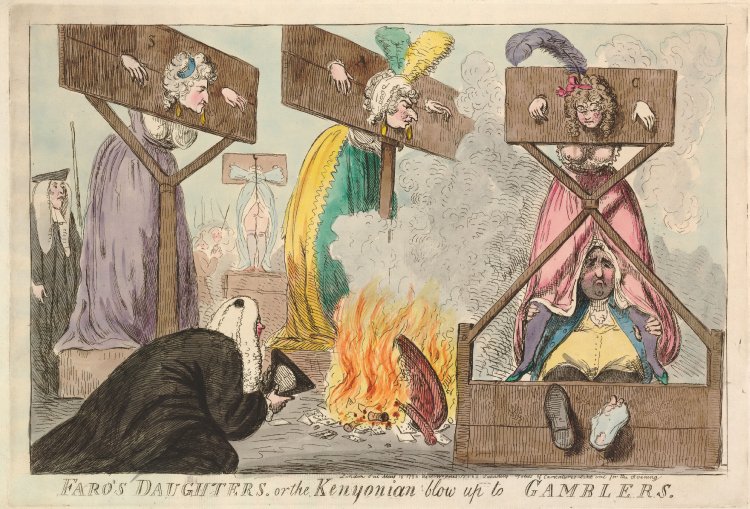Faro is a simple gambling card game that originated in France, in the late 17th century (should you wish to visit a site with modern card gambling games visit Spin Palace). Faro is believed to belong to the family of games that include Lansquenet and Monte Bank.
Faro is a game that lives in the chronicles of gambling history. It was once the most popular form of gambling in the United States and parts of Europe.
Best Casino Hotels in Faro District on Tripadvisor: Find 2,715 traveler reviews, 2,565 candid photos, and prices for 10 casino hotels in Faro District, Portugal. Faro is a gambling card game that was a derivation of a card game called Basset. Faro originated in France in the late 17th century. First known as Pharaon, it became extremely popular in Europe in the 18th century. With its name shortened to Pharo or Faro, it soon spread to America and became the favored game during the California Gold Rush.
Play The Best Online Casino Games of 2021 - Learn about and play slots, roulette blackjack & more. Play for free or real money with bonuses up to $£:€1600! This ranks among the most popular casino games online. The intergalactic game. Most Popular FREE Online Casino Games (in 2021) - Play 6,380 games, including 7,000+ Slots 80+ Blackjack 50+ Roulette 180+ Video Poker plus more! Best Online Casino Games. Online casinos offer the same games and chances to win real money as land-based casinos, but they have a wider game selection and bigger jackpots. To help new players find the best casino games to play for their level and style of gameplay, check out our expert's recommended list of the most popular online games. Best online casino.
Faro Card Game Free
Now, however, faro isn't available at any casino. It has long since disappeared due to rampant cheating. Most notably, gambling houses cheated players through rigged dealing boxes. This unscrupulous behavior not only soured gamblers' minds on faro, but it also created the fear that casinos everywhere could be cheating.
I'm going to cover more on exactly how the house used to deceive faro players. I'll also discuss how these scams give gamblers doubts about casinos even today.
Losing Gamblers Become Paranoid Quickly
Results of casino games are attributed to simple mathematics. The game rules and odds behind each bet or decision dictate how frequently or how little you win.
Of course, luck also plays a role in your results. Assuming you go on a hot streak, you could win a lot of money.
However, the house usually wins in the end because the odds are in its favor. Outside of a few video poker variations, they hold the advantage in every game and bet.
Some gamblers, however, refuse to accept this fact. When they win, they think that it's all attributed to their good fortunes. If they lose, they become paranoid and think that a conspiracy is afoot. Specifically, losing gamblers begin feeling like they're being cheated by the casino.
As I'll cover later, though, casinos stand to lose far than they gain by cheating. But thanks to faro, the thought that the house constantly rips off players has been passed down through generations.
What Is Faro?
A faro game features the following main elements:
- 13 cards of the same suit (e.g. 2 through ace of spades) that represent the board
- A 52-card deck that the dealer draws from
- Chips that players use to lay/bet on cards

The dealer puts the 52-card deck into a 'dealing box.' The latter is meant to properly shuffle the cards to ensure a fair game—although, as covered later, this wasn't always the case.
After pulling the deck out of the box, the dealer burns the first card (i.e. 'soda' card). They draw two more cards, with the first representing the banker and the second representing the player.
All bets laid on the banker card automatically lose. If the banker card is 8, for instance, then all chips placed on 8 will be taken by the dealer/house.
All wagers laid on the player hand automatically win a 1:1 payout. Assuming the player card is 5, for instance, then anybody who lays chips here will receive an even-money payout.
You also have the option of betting on the high card, too. In this case, the player needs a higher card than the banker for you to win.
Any wager that lies outside of these scenarios is a push. In such cases, you can let your bet ride on the next hand, switch your chip(s) to another card, or simply remove the chips from the table.
Faro Experienced an Incredible Rise in the Mid-1800s
Faro is an offshoot of a French gambling game called 'pharaoh.' The latter first became popular in the late 1600s, when the French government banned another card game called basset.
Pharaoh's popularity quickly spread to England, where it would be known as 'pharo.' This game eventually made its way to the United States by the early 1800s.
Faro, as it was now known by Americans, would become an instant hit everywhere from the Old West to Washington DC The latter actually featured this game in more than 150 gambling houses at one point.
By the mid-1800s, faro easily became a part of US gambling history. It brought in more money than all other forms of gambling combined at the time.
Rampant House Cheating Ended the Faro Boom
Casinos' certainly enjoyed the traffic and revenue that faro brought in. However, they didn't like how they were dealing with a really small edge with this game.
Therefore, gambling houses started rigging games to increase their advantage. They would cheat players through one or more of the following means:
- Rigged dealing boxes – These boxes typically included a small mirror that dealers could use to see the next card to be dealt from the box. If a card favored players, the croupier could pull two cards simultaneously and conceal a card that would favor gamblers underneath.
- Removing chips – In conjunction with a rigged dealing box, a dealer could figure out the next winning card and discreetly slide a player's chips onto another card. This was a risky move, though, considering that gamblers could catch the croupier in the act.
- Stacking the deck – A dealer could essentially keep the same card order between rounds while giving off the illusion that they properly shuffled the deck. This technique was common after a round where the house beat a large number of players.
These scams only lasted so long before many gamblers started catching on and complaining. Even equipment manufacturers were onto the scam and would develop rigged dealing boxes for casinos.
Card manufacturer Hoyle issued warnings to players regarding Faro. They noted how it was hard to find an honest game anywhere in the country.
Faro Dies a Slow Death
Many gamblers began to realize that the faro odds were stacked against them. Most stopped playing the game altogether upon revelations of how easy it was for the house to cheat.
Although faro is one of the less common gambling games nowadays, its cheating nature impacted gamblers' mindsets for years to come. Thanks to this game, many players held onto the belief that the casino might be rigging more games.
Reasons Why Gamblers Should Let Go of Casino Cheating Conspiracies
Gamblers had every right to be suspicious of casinos after playing faro. After all, many gambling venues were cheating through this game in the mid-1800s.
However, times have changed greatly regarding casino cheating. The following three reasons explain why you rarely, if ever, need to worry about such scenarios today.
Royal panda roulette review. Enjoy Royal Panda's online roulette games. What is roulette? Born in 18 th century France, with many siblings all over the globe, roulette is a casino game of glamour, sophistication and joy. Thanks to its light-hearted nature and simplicity of game rules, roulette has become one of the most popular live casino games that lures players from all walks of life.
Casinos Are Heavily Regulated
State and national governments don't approve casinos half-heartedly. Instead, lawmakers ensure that various regulations are set forth before legalizing gaming.
Part of these regulations includes a central governing body. For example, New Jersey features the Division of Gaming Enforcement (DGE).
The DGE heavily vets gaming applicants to ensure that they meet New Jersey standards. They also monitor casinos to ensure that they uphold their licensing requirements.
Casinos don't just get to do whatever they want in gaming markets. Instead, they would have higher authorities to deal with if they ever tried cheating anybody.
The Cost of Getting Caught Is Too High
Gambling establishments already have an advantage over players in every game, so casinos don't need to cheat. They can sit back and let the odds work in their favor.
Of course, if casinos were willing to cheat, much like gambling houses did with faro in the mid-nineteenth century, they could boost their profits. Assuming they cheated enough, they'd gain a massive edge.
The problem, though, is that the downsides far outweigh the benefits. If a casino gets caught rigging games today, they'll lose their license and risk legal action.
News Travels Fast
Even if a casino somehow survives a cheating scandal financially, their reputation will be permanently ruined. In the age of social media and the internet, where news travels instantly, no gambling venue would recover from such a scandal.
The only option for success would involve the parent company selling the casino. With luck, new management might be able to turn around the brand's reputation.
In short, though, the current owner would be ruined if their casino were caught cheating. They'd lose everything in terms of player trust just for a slightly larger advantage.
Conclusion
Faro isn't the first game that the house has cheated players through. However, it's arguably the most famous example of a rigged game.
Casinos used a few different means to increase their odds in faro. They felt justified in doing so when considering their small edge.
The players, meanwhile, didn't agree. Gamblers quickly vacated faro tables for good after finding out just how badly they were being taken advantage of.
Faro In Gambling
Even if modern-day players don't realize it, faro is one of the biggest reasons why gamblers continue to mistrust the house. Luckily, though, far more regulations are in place regarding gaming nowadays.

